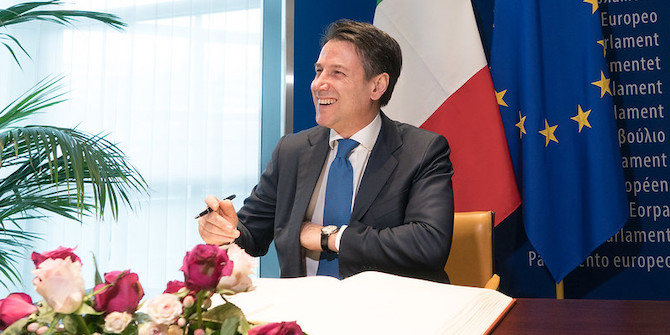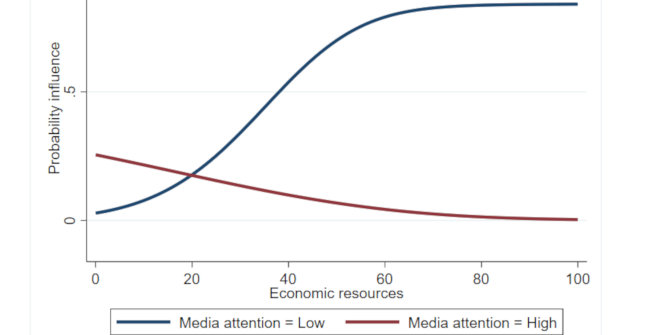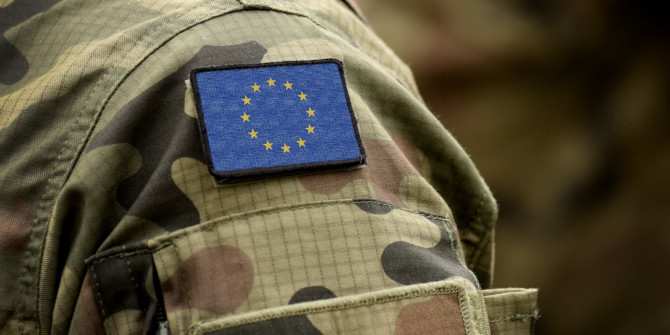 From the starting position of a political outsider, Italy’s PM Giuseppe Conte has carved a widely positive image for himself, gaining widespread popularity during the Covid-19 crisis. Marino De Luca argues that Conte’s savvy use of communication channels during a time of national emergency, combined with his personality, have helped him project an image of political competence, empathy, and reassurance.
From the starting position of a political outsider, Italy’s PM Giuseppe Conte has carved a widely positive image for himself, gaining widespread popularity during the Covid-19 crisis. Marino De Luca argues that Conte’s savvy use of communication channels during a time of national emergency, combined with his personality, have helped him project an image of political competence, empathy, and reassurance.
Only two years ago, Giuseppe Conte was a political novice who, as Prime Minister, had paved the way for the two main Italian populist parties to form a government. The anti-establishment Five Star Movement and the right-wing League had chosen a professional lawyer and academic with no political experience who, in his first speech, announced that he would be the defence attorney of all Italians.
The 2019 government crisis threw Matteo Salvini’s League out of government and welcomed the centre-left Democratic Party (PD) into its place. Despite everything, Conte has managed to maintain his position as PM of the new ‘half-populist’ government, with widespread international endorsement, including that of US President Donald Trump and NATO Secretary-General Jens Stoltenberg.
During the Covid-19 emergency, the Italian Prime Minister made careful and thoughtful use of the media, thanks in part to the support of a professional staff capable of shaping a media image consistent with the leader’s characteristics. This made it possible to develop some dimensions of his media identity: reliability and political competence, empathy, reassurance, and personal sharing in times of collective difficulty in order to protect Italian interests. His personality, combined with the contingent historical period, has highlighted the new features of modern leadership in a political context that has been characterised, especially in recent years, by muscularity and public–private protagonism. As a result, Conte achieved the highest levels of popularity during the emergency period, particularly during the first phase.
Communicating via social media during a state of emergency
In contemporary politics, the ability of leaders to communicate their messages has reached new levels, due partly to the erosion of the monopoly that mainstream media and traditional political actors held over this area. The implementation of communication platforms such as Twitter has provided political leaders with an opportunity to act in an unmediated way, quickly, speedily and virally, and directly involving the citizenry. In particular, this direct relationship allows outsider politicians to bypass traditional elitist media that often oppose them. Through the capacity to develop short and straightforward communication, using everyday language, Twitter enables leaders to reach the electorate at large.
However, if on the one hand it seems that Twitter is used by leaders to connect with the people, for example by befriending them, on the other hand this virtual friendship is more selective than it appears. Indeed, the prevailing trend is to engage only individuals with similar opinions, cultivating ‘homophily’. This allows a grouping of followers to be cultivated in the leader’s image and likeness, with whom they can communicate or give attention, thereby embodying the group and becoming its voice.

Italian PM Giuseppe Conte at the European Parliament. Credit: European Parliament (CC BY 2.0)
In order to understand the Italian premier’s approach, I analysed the tweets published on the official Giuseppe Conte account (@GiuseppeConteIT) from 31 January 2020, the day of the declaration of the “state of emergency as a consequence of the health risk associated with the onset of diseases deriving from transmissible viral agents,” until 3 May, the last day of the most critical period, called “phase 1”. Overall, these are 14 weeks of emergency, during which Prime Minister Conte published 163 tweets, 96 of which related to the Covid-19 crisis (it is worth noting that 37.4% of Conte’s tweets refer to live broadcasts, interviews, or press conferences: from this point of view, social media is used as an “alert” to inform followers of upcoming news.)
Figure 1 indicates both the trend of the tweets in the period considered, and the use by Prime Minister Conte of words referring directly to the virus (“Coronavirus” and subsequently “Covid-19” after its naming by the WHO).
Figure 1: Giuseppe Conte’s number of overall tweets and number of tweets containing the words “Coronavirus” and/or “Covid-19” during the 14 weeks of analysis (31 January-3 May 2020).

The first interesting fact concerns the surge in communications by the premier a month after the declaration of the state of emergency. In fact, after the media hype surrounding the case of the two Chinese tourists who tested positive for the virus and were subsequently hospitalised in the Spallanzani hospital in Rome, media and political attention had diminished. But starting from the fourth week (21 February), following the outbreak of infections found in Lombardy (in Codogno, in the province of Lodi), and the exponential increase in the following days, the attention of the premier and politics in general, both national and foreign, was almost monopolised by the spread of the virus in Italy. The data indicate an incremental trend in the premier’s tweets up to the seventh week and then a gradual decrease until the end of the period analysed (with a short intermission during the twelfth week, in conjunction with the Easter holidays).
As regards the data relating to the use of “Coronavirus” or “Covid-19” by the premier, the graph indicates a greater “nominalisation” of the virus in the first phase of the emergency. In fact, starting from week seven, the words “Coronavirus” and “Covid” completely disappear from Conte’s tweets, causing the first real change in the premier’s communication. Conte no longer calls the problem by its name, a term abused by the media in the first few weeks, but it becomes something else, something essential and collective within the Prime Minister’s narrative. Covid thus becomes an enemy to be fought in ‘battle’ and with respect to which to join forces and build a popular narrative, a challenge, the new ‘difficulty’ on a par with wars and fascism, and again the emergency and the ‘shock’, the ‘obstacle course’ of ‘heavy and difficult days’. The Prime Minister, once the official wording becomes abundant, rarely uses terms such as ‘virus’ or ‘pandemic’, preferring a dichotomous description which pits the Italian people, courageous, patient, dedicated to sacrifice, against the invisible evil that acts despite everything.
"The virus has no borders”. We are proud to join @WHO and many other partners to accelerate all efforts for a universal and equitable access to the vaccine against #COVID19. Finding and distributing the vaccine is the only way to win this battle. Together we will make it.
— Giuseppe Conte (@GiuseppeConteIT) April 24, 2020
But in the Prime Minister’s communication there is also a very effective narrative image which, on the one hand, asks for the ‘sacrifice and unity’ of citizens, almost as in an act of faith, and on the other offers the figure of a welfare state dedicated to its children in a paternalistic and curative impulse. This is a solidarity-based approach of a statist matrix with direct effects on personal freedoms, that in the first weeks had clearly distinguished itself from the measures taken against the virus by other countries, such as the United Kingdom or Germany, which were characterised by a realistic approach, pragmatic and economically driven.
For Giuseppe Conte, therefore, the request for ‘sacrifice’ and ‘responsibility’, and of course the renunciation of a little personal freedom, corresponds to a state close to its citizens, capable of taking care of everyone’s needs. A state, as the premier repeats several times, that does not ‘forget them’. A welfare state, therefore, that finds in pre-Christian sensitivity and even more in Catholicism the extreme ratio of a modus operandi which obviously shows ‘diminished responsibility’ in the face of the possibility of ethically contradictory choices, but which inspires and rests part of the decision-making consensus on civilisation and the worship of ancestors, as well as on family care – the reason for survival and justified public spending.
Please read our comments policy before commenting.
Note: This article gives the views of the author, not the position of EUROPP – European Politics and Policy or the London School of Economics. The article reflects only the author’s views and the European Commission or the Research Executive Agency is not liable for any use that may be made of the information contained in such publicity. The project has received funding from the European Union’s Horizon 2020 research and innovation programme under the Marie Skłodowska-Curie grant agreement no: European Union Grant Agreement number 838418.
_________________________________

Marino De Luca – University of Sussex
Marino de Luca is a Marie Sklodowska-Curie Research Fellow at the Department of Politics (School of Law, Politics and Sociology) at the University of Sussex. His research concerns political parties, elections, intra-party democracy, political communication and populism.





